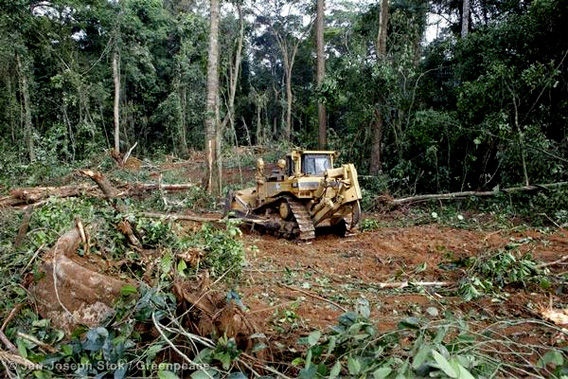Africa is blessed with vast hectares of fertile land. The continent has a tradition of palm oil production deeply rooted in many local cultures and practices. Despite the fact that the oil palm tree is native to the continent, Africa remains a relatively inconsequential player when it comes to global production. Only Nigeria produces anywhere close to even a million tonnes a year.
All the same, this is set to change, as capacity reaches saturation point in main producing countries like Indonesia and Malaysia. The world’s biggest palm oil companies are looking to Africa to help satisfy increasing and unending global demand. How can African states face this challenge?
Astonishingly, Cameroon happens to be the third largest producer of palm oil, also known as ‘black gold.’Monde Kingsley Nfor of IPS in an article published in AllAfrica dated 4 July 2013is of the view that,while Cameroon may be the third-largest producer of palm oil, after Nigeria and Côte d'Ivoire, it has an annual deficit of the oil for domestic consumption. More than 80 per cent of the palm oil produced in Cameroon by agro-industries is exported to the Middle East, France and other European countries, according to Pierre Jonathan Ngom, national coordinator of Small Holder Oil Palm Development Programme Cameroon (SOPDP). This same case scenario repeats itself in palm oil producing countries like Nigeria and Côte d'Ivoire.
According to statistics from Cameroon’s Ministry of Agriculture and Rural Development (MINADER), Cameroon produces about 200,000 tonnes of crude palm oil annually. Agro-industrial palm production accounts for 140,000 tonnes, while small-scale farmers produce the remainder. "Supply for local consumption keeps falling as much of the oil produced is consumed by the processing industries and export markets. Following this trend, locally-produced palm oil has become a niche item on local markets," Ngom adds.
According MINADER, small-scale producers in Cameroon generate yields of less than one tonne of palm oil per hectare. But in Indonesia and Malaysia, small-scale plantations achieve yields four times those of their Cameroonian counterparts.
The reason for this may be because the government of Cameroon has not taken the pains to revamp the private sector and most especially give room for small scale farmers to produce palm oil massively. What most governments in Africa involved in palm oil production are doing is instead giving room for ‘land grabbing.’ Western companies are landing on the continent and purchasing land at little or no cost. Those who benefit from such illegal sales are few corrupt government officials at the detriment of poor palm oil farmers. In as much as I am a champion of free markets and economic liberty, it is vital for small scale farmers not to only play a role in palm oil production, but to benefit from their toil and sweat.
Luckily, organisations like SOPDP are trying to assist farmers in Cameroon to increase their output. One of SOPDP's aims is to increase this output, through the distribution of improved species. The programme aims to increase national palm oil production to 450,000 tonnes by 2020.
African governments need to therefore revisit their modus operandi in so far as palm oil production is concerned. Apart from opening up the private sector and encouraging small scale farmers, the state needs to also step up mechanisation of the agricultural sector if we must respond to the increasing global demand of ‘black gold’. Having foreign investors investing in palm oil is not a bad thing, but arrangements like the selling of vast hectares of land must also take into account the environmental and economic concerns of locals, especially small scale farmers.
Chofor Che is an integral part of the Africanliberty’s Voice of Liberty initiative. He is also a Doctoral Law candidate at the Faculty of Law, University of the Western Cape and blogs at http://choforche.wordpress.com/


